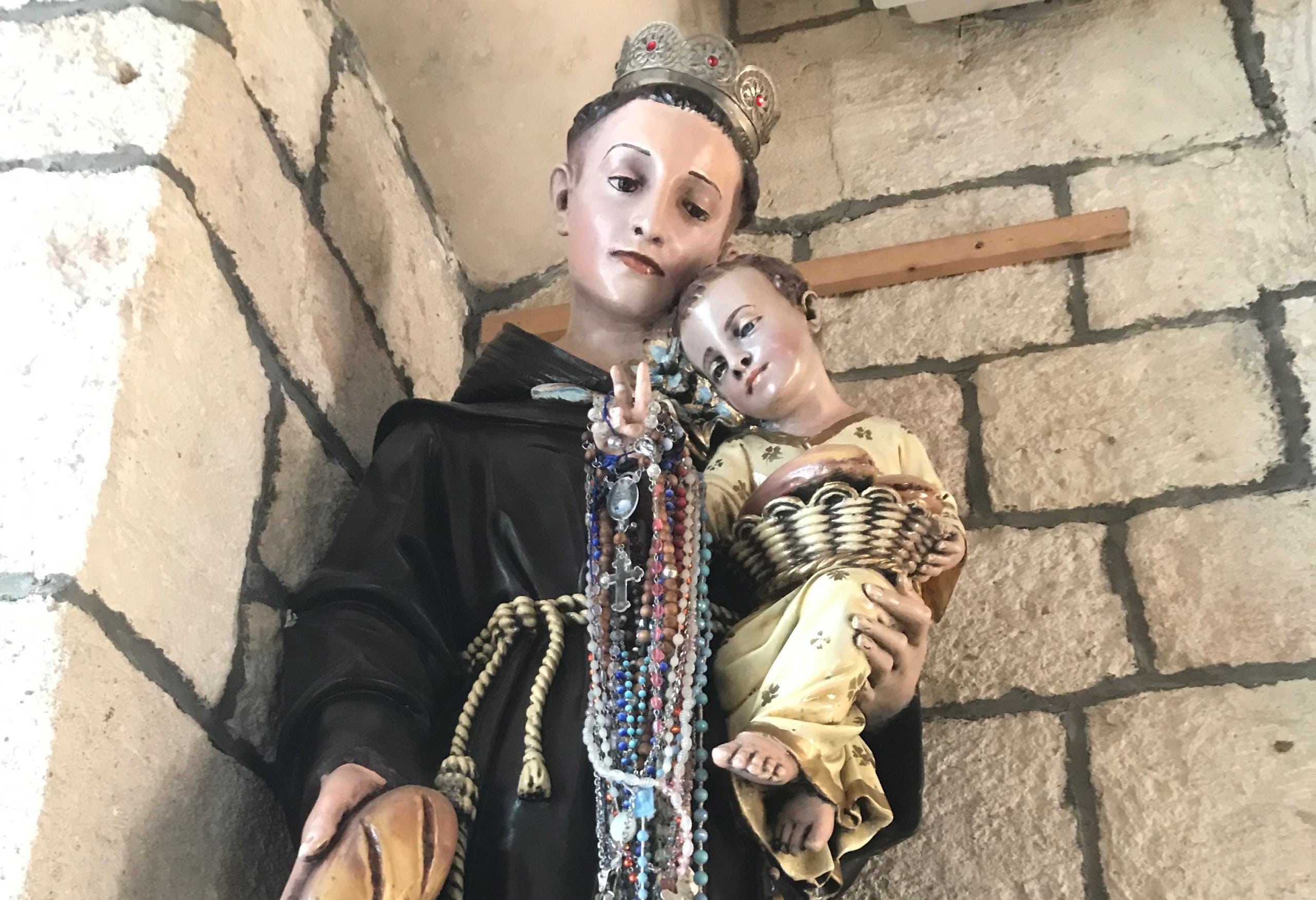
St. Anthony: patron saint of the Custody of the Holy Land for a hundred years
To know episodes, anecdotes, traditions and chronicles of a centuries-old history such as that of the Custody of the Holy Land the right person to turn to is certainly Father Narciso Klimas, responsible for the historical custodial archive. A well of knowledge and kindness that one could listen to for hours in telling the history of the church and the life of the Franciscan friars in Jerusalem. We turned to him to learn more about the link between the Custody of the Holy Land and Saint Anthony, who became the patron saint of the Franciscans in the Holy Land in 1920. The celebrations for St. Anthony take place during a triduum, a cycle of prayers or rites that takes place over three days in preparation for a feast in honor of a saint or a request for a special grace.
They entrusted themselves to this Franciscan friar of Portuguese origin, who died in Padua in 1231, because he was greatly venerated by the faithful for the accomplishment of miracles. We are in the 1920s and the First World War did not spare even the friars of Jerusalem. The Custody of the Holy Land inevitably found itself having to deal with the politics and decisions of the powerful.
When the First World War began and there was the clash between allied Germany and Turkey against France, England, Russia and Poland, the Custody of the Holy Land had friars of all these nationalities within it. In 1914, the first move of the Germans and the Turkish allies (remember that Jerusalem was still under the Ottoman Empire at the time) was to expel the friars of the enemy nations. The first to leave are French, then English and Polish. The friaries are partly emptied. When, at the end of the war, the departure of the Italians is also feared, the friars entrust themselves to Providence to avoid the closure of the sanctuaries. They celebrate a triduum, but it is not known to whom it is dedicated.
In 1915, another factor was added to a situation that was more than ever in need: to war, misery and deportations was added an invasion of locusts that hit the Middle East. The government requires every citizen to capture a daily quantity of locusts so as not to be sanctioned. The friars rely on the local population who, in exchange for financial aid, collect enough insects for them to present to Turkish officers.
The British threw new fuel on the fire with the Balfour declaration in 1917: the famous declaration promised the creation of a national hearth for the Jews in the Holy Land. The situation was already tense with the arrival of Jewish immigrants from the end of the 19th century, but with the official document things became even more complicated. With the arrival of General Allenby and the beginning of the British Mandate, tensions between Arabs and Jews intensified even more.
The Custody is without a guide to deal with this complex situation because the Custos Fr. Seraphim Cimino in the meantime was elected General of the Order. Taking the place of the Custos, Father Eutimio Castellani, being Custodial President (substitute for the Father Custos in his absence), assumes the responsibility of guiding the Franciscans. To him we owe the proclamation of the triduum in honor of St. Anthony, in the spring and October of 1917, when the threat of the departure of the Franciscan friars of Italian origin became real again. In November, when the friars are ready with their luggage to leave, the governor of the Turkish city arrives with the kawas to give good news: the friars can stay, St. Anthony has heard his prayers again and no friar should be sent away. This does not happen for the other Christian communities who lose their representatives: the Latin, Orthodox and Armenian patriarchs are deported. Furthermore, the Turkish governor, seeing the robes of the friars, asked for material of the same cloth. And in the following days the governor wandered around Jerusalem in a brown suit sewn with Franciscan cloth.
When the war was over, in the Convent of St. Saviour, in front of the statue at the altar of the saint, on June 13, 1920, words of thanks were pronounced in a solemn celebration and St. Anthony was officially chosen as Patron Saint. Since then, every year in June, together with representatives of the other churches, a triduum dedicated to him is celebrated.
A story that still has a strong value even today, one hundred years later, so much so that the current Custos of the Holy Land, Fra Francesco Patton, at this difficult time, once again invites his confreres to pray for St. Anthony to ask for help during the world pandemic caused by the Coronavirus. He is once again relied upon to ask for the cessation of the disease and the support of the friars and the community around them.